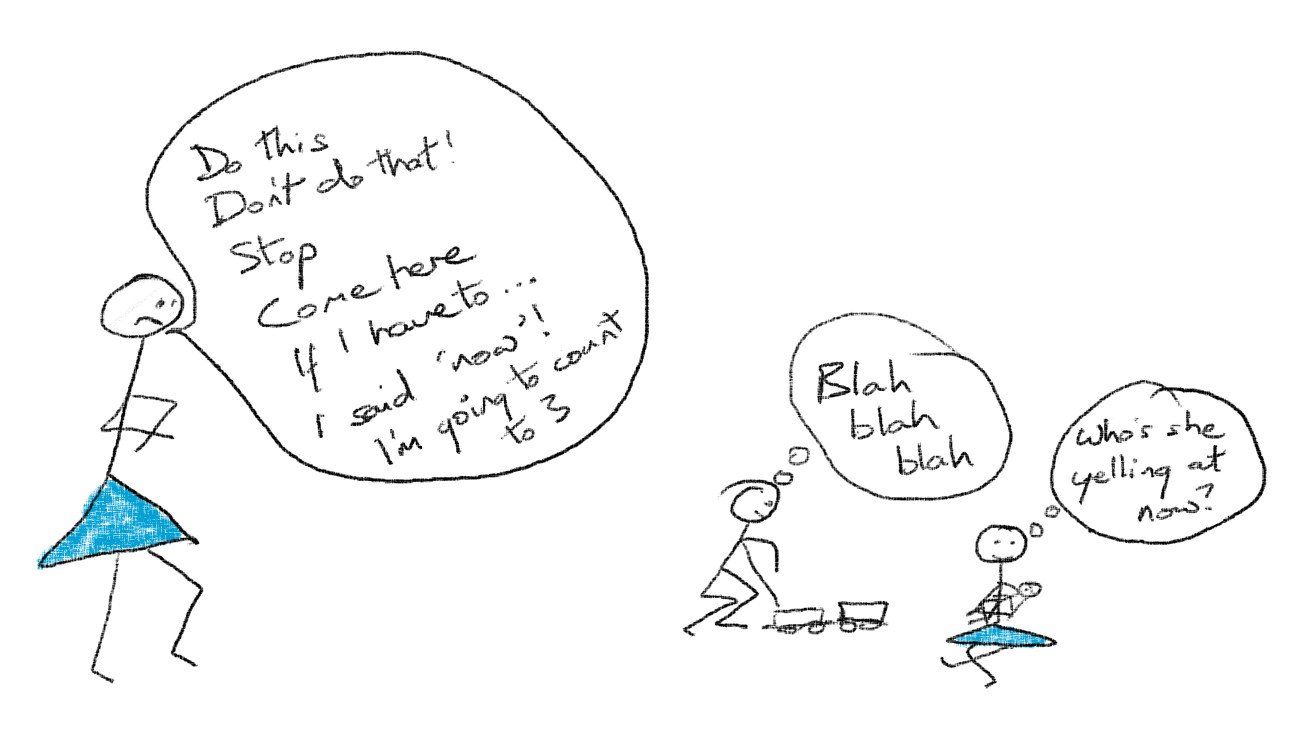
Creating A World With Invisible Boundaries
As adults we live in a world without constant controlling interventions. We feel free to make our own choices within the framework that society has established around us.
The same can be true for our children.
Key stages:
- Deepen your understanding of how children operate
- Assess your overall control regime and parenting style
- Decide where you would like to be
- Create a plan
- Discuss your intentions, seek feedback and suggestions
- Develop your skills and confidence
- Extend to difficult situations
- If we need to be frequently intervening to control things then it's of our doing
- A few simple techniques is all it takes to turn things round, simple in concept, not necessarily in application
- These techniques are: attention is high octane fuel, use it wisely, give in quickly or not at all, stop - fight your instinct to intervene, use the gift of time, don't repeat - wait, set expectations, allow them to be different - don't impose yourself, make age related and individual allowances, remember children are only ever good, learning or seeking attention. negative labels give permission for bad behaviour, don't punish your failings, don't expect more emotional intelligence than you have yourself, don't react to their reactions, give alternatives - don't take away freedoms,
- Control is like a drug, the more you use it the more you need, it becomes part of the system
This Is How Children Are:
- Children exist in a world where they have little if any direct control over their needs and wants - they have to be experts at getting their needs met through us
- Children start out knowing nothing and need to learn 'everything' - they are programmed to learn by observation, by trial and error, by repetition and by attention - they push boundaries, they make mistakes - they learn, not from what we tell them, but from what we do and the interactions we set up and the attention we give
- Children are constantly judging and analysing, from an early age they judge us in our ability to provide them with a fair, just, consistent, stable, generous framework
- Children have their own preferences, learning styles, dreams, hopes, fears
- Children grasp things at different speeds and different ages, their progress is neither linear or completely random
- If we are constantly controlling them they learn both to resist us and to control others
- If we give attention to undesirable behaviours they will learn to do these more often
- If we give in to negative behaviours they will behave negatively whenever they want something
- If we label them as naughty every time they make a mistake or overstep a boundary they will think of themselves as naughty and be so even more
- If we loose control of our emotions they are more likely to loose control of theirs
- We might think we need to teach and control but more often than not we need to listen and set an example
- If we give attention to the wrong things, have unrealistic expectations for them at their age, believe that we can fix things with commands, act inconsistently, shift the goal posts, give in when we're tired, expect them to drop what they're doing without notice, then we only have ourselves to blame

Assess Your Overall Parenting Regime
Whether governments are elected or imposed they ultimately survive if they can do three things:
- Keep us safe
- Provide us with a sense of freedom
- Set clear boundaries
As parents we need to be able to do the same thing.
Children will exploit weakness and rebel against excessive or unnecessary control.
Ideally we should aim for generous spirited authority.
If we are not generous in spirit, or clear in authority we can expect rebellion and exploitation.
But, we need to go beyond that because we are not just acting in the role of governing authority, we are also acting as an almost ever present minder.
As minder would you rather be a mother hen or a zen master?
Would you rather teach self control or resistance to control?
Are we generous spirited? Do we seek to say yes as often as possible, do we ????
Where Do You Want To Be?
Maybe it's not so much about where you want to be as where you feel you can be.
Time pressures may make it genuinely impossible to give as much time to transitions as you would ideally like. Having to deal with more than one child may make standing and waiting difficult.
On the other hand are you really saving time by being more controlling or just being more 'active' in the process?
It is for you to decide, but wherever you decide to draw the line the key is to be consistent. It's much easier to eliminate all unwanted negotiations than just those that occur in a particular circumstance.
Create A Plan
Explain the changes to everyone and get input to help it work.
Anticipate what is likely to happen the first few times and prepare for it.
Remember, children are people too. If you wouldn't do it to an adult, don't do it to a child.
Created 01/10/2018
Last Updated 05/10/2018

